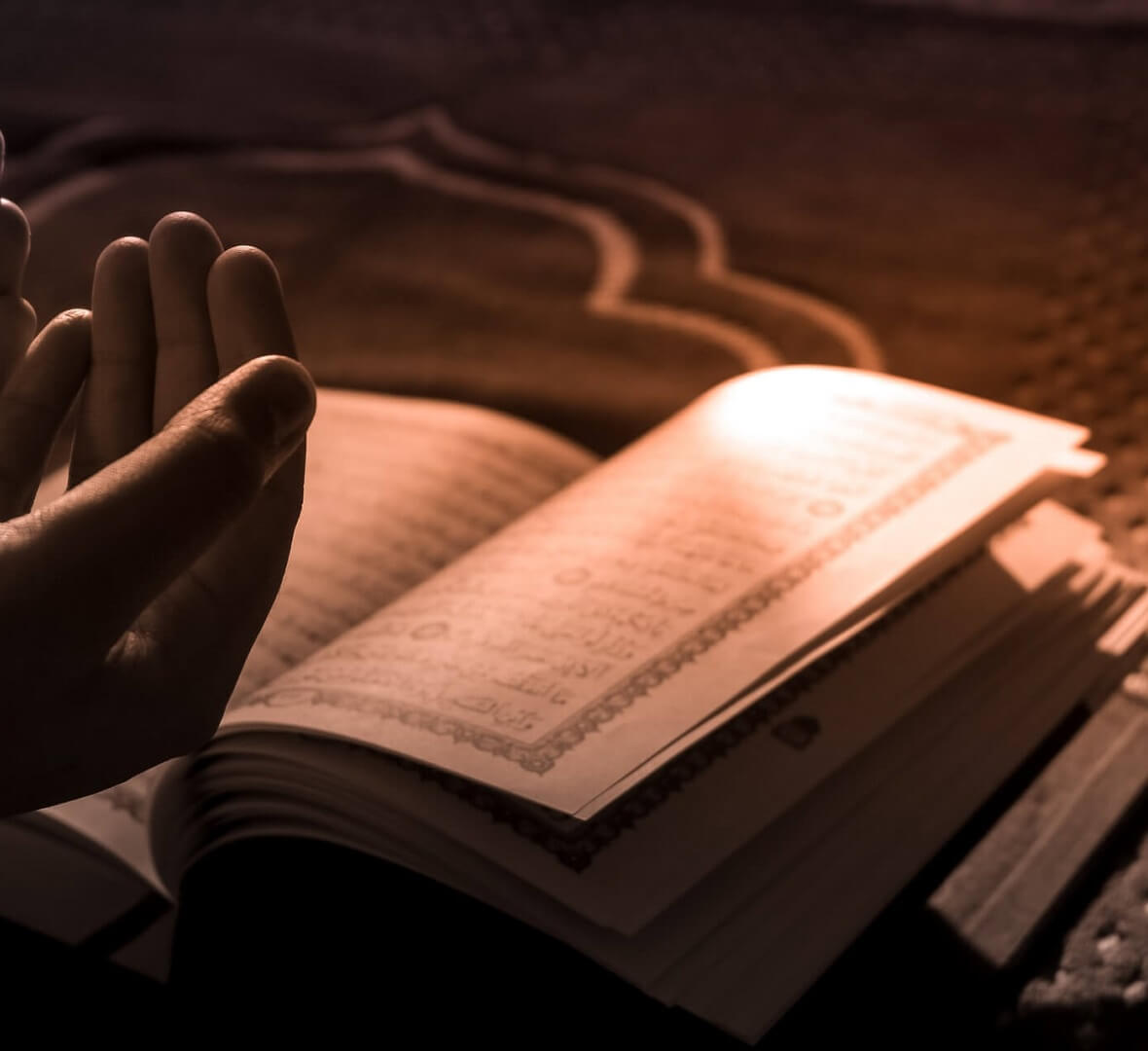We do acts of worship in order to gain Allah SWT’s pleasure. Fasting of Ramadan is one such obligatory act of worship that has great significance. Allah SWT. has promised a special reward for the one who keeps fast. We do it exclusively for Allah SWT.
What is Fasting?
Fasting is done by abstaining oneself from eating, drinking, and sexual gratification from sunrise to sunset. Fasting will be a shield from the fire of hell and will also help us from staying away from sins Insha Allah.
“O you who have believed, decreed upon you is fasting as it was decreed upon those before you that you may become righteous.”
– [Surah Al-Baqarah 2:183]
“Fasting is a shield or protection from the fire and from committing sins.”
– [Sahih Bukhari: 1904]
The reward of fard ibadat in Ramadan is huge.
“… Whoever performs a fardh (obligation), shall be given the reward of seventy faraaidh (obligations) in any other time ….”
– [Sahih Ibn Khuzaymah, Hadith No. 1887]
Special Gate of Jannah
There is a gate in Jannah dedicated to fasting people.
“There is a gate in Paradise called Ar-Raiyan, and those who observe fasts will enter through it on the Day of Resurrection and none except them will enter through it.”
– [Sahih Bukhari: 1896]
Related – 8 gates of Jannah explained
One of the five Pillars of Islam
It is an obligation on every adult Muslim and Muslimah to fast during Ramadan.
“Islam is based on Five Principles and to observe Fast (according to Islamic Teachings) during the month of Ramadan is one of them.”
– [Sahih Bukhari: 8]
Main Purpose of Fasting:
The main purpose of fasting is to gain taqwa and marefat (closeness) of Allah SWT. It’s a month full of training our Nafs. Our main focus should be on self-purification and spiritual development.
Prophet (S.A.W.) said that Allah Said:
“The most beloved deeds with which my slave comes closer to Me are the obligatory deeds.”
– [Sahih Bukhari: 6502]
Not only we are supposed to abstain from food and drink but we are expected to keep away from other sins too. Especially the sins of tongue, eyes, and hearing. We should avoid all kinds of bad, purposeless talk. We should guard our eyes and avoid listening to haram music.
We must avoid digital media as much as possible. A small click can destroy our fast. It’s a great time for a social media detox and training of our Nafs.
“Whoever does not give up evil and ignorant speech, and acting in accordance with that, Allah has no need of his giving up his food and drink.”
– [Ibn Majah: 1689]
But we see that many of us indulge in eating, shopping, sleeping, etc during this time. Non-muslims generally think that Ramadan is an eating and shopping festival for Muslims. Instead of keeping these things simple, we indulge in these activities which ruin the whole purpose of fasting.
We, women, keep on looking forward to sales and offers in this period. We should try to finish all EID shopping before Ramadan and keep ourselves free for taking maximum benefit from this holy period. This is the time when the biggest sale of Akhirah is on. It is the time when all the rewards are multiplied by 70 times. The biggest deals of life in Akhirah are to be made if we just change our focus and refresh our Imaan. We can be more mindful of not overindulging in shopping, eating, and iftar parties.
Related – Consequences of not fasting in Ramadan.
A Good Balance of Ibadaat and Celebration:
As Ramadan is the period of revelation of the holy Quran we must increase the recitation of the Quran in this month. So we keep a check on ourselves that we keep our focus more on Ibadaat and tazkiya and lesser focus on worldly things.
“The month of Ramadan in which was revealed the Qur’an, a guidance for mankind and clear proofs for the guidance and the criterion (between right and wrong).”
– [Surah Al-Baqarah 2:185]
Eating a suhoor meal is also an act of ibadat. So make sure that you eat a good suhoor meal and get rewarded for it inshaAllah
“Take Suhoor (late night meal) as there is a blessing in it.”
– [Sahih Bukhari: 1923]
Charity in Ramadan
Remember to include the poor and needy in your celebrations during Ramadan as the reward of charity is also multiplied in this period.
In a Hadith, the Prophet Muhammad (peace be upon him) said, “The best charity is that given in Ramadan.” (Bukhari and Muslim).
Itikaf in Ramadan
There is great significance in doing i’tikaf during the last Ashrah of Ramadan. Few people from the community must practice it in the last ten days of Ramadan.
“Allah’s Messenger (S.A.W.) used to practice I`tikaf in the last ten days of the month of Ramadan.”
– [Sahih Bukhari: 2025]
Duas in Ramadan
The duas of the fasting person is not rejected according to the following hadith.
“There are three whose supplication is not rejected: The fasting person when he breaks his fast, the just leader, and the supplication of the oppressed person”.
– Tirmidhi: 3598
So, we must make the most of this blessed time and make lots of duas. There is another article on our site that discusses in detail the duas to be made during Ramadan. You can click the below link and read it, Insha Allah.
Related – List of duas to make in Ramadan
Umrah in Ramadan:
The reward of an umrah done in Ramadan is equal to the reward of performing haj.
“When Ramadan comes, go for Umrah, for Umrah in Ramadan is equivalent to Hajj.”
– [Sahih Muslim: 1256]
Taraveeh prayer in Ramadan
The reward of praying Taraveeh in Ramadan is like spending the whole night in ibadat.
“Whoever prays Qiyaam (Taraweeh Prayer) with the imam until he finishes, it will be recorded as if he spent the whole night in prayer.”
– [Tirmidhi: 806]
Searching for Laylatul Qadr:
During the last 10 nights of Ramadan, we are asked to do lots of ibadat and search for Laylatul Qadr. It is called the Night of Power. On this night Quran was revealed.
The Prophet (peace be upon him) said, “Whoever prays on Laylatul Qadr out of faith and sincerity, shall have all their past sins forgiven,” (Hadith, Bukhari and Muslim).
Mu’awiyah ibn Abi Sufyan reported: The Messenger of Allah, peace and blessings be upon him, said, “Seek the Night of Decree on the last night of Ramadan.”
Source: Ṣaḥīḥ Ibn Khuzaymah 2189
Zikr in Ramadan:
Zikr means remembrance of Allah SWT.
In a hadith, our beloved Prophet Muhammad (SAWS) mentioned that the best of those who fast are the ones who remember Allah the most.
As the reward of all good actions is increased during Ramadan we must try to be in zikr as much as possible.
Doing lots of Astagfar will clean our hearts. Zikr has multiple benefits.
- It softens our hearts and makes us humble.
- It makes us close to Allah SWT.
- It is the food of our spiritual heart.
In Ramadan, we can challenge ourselves to do more zikr as we have the help of Allah with us on these special days. We know that the Shayateen are locked in this month. So we must take maximum benefit of this opportunity and do as much as zikr as possible.
Also, we must do zikr with Tafakkur. It means doing Azkar with the presence of mind.
I found a very good article that lists some of the easy Azkar to be done in Ramadan:
www.productivemuslim.com/dhikr-for-extensive-reward/
Death in Ramadan:
Not even living during Ramadan but dying in this blessed month has great significance.
“When the month of Ramadan begins, the gates of the heaven are opened and the gates of Hellfire are closed and the devils are chained. “
– [Al Bukhari 1800, Sahih Muslim 1079]


